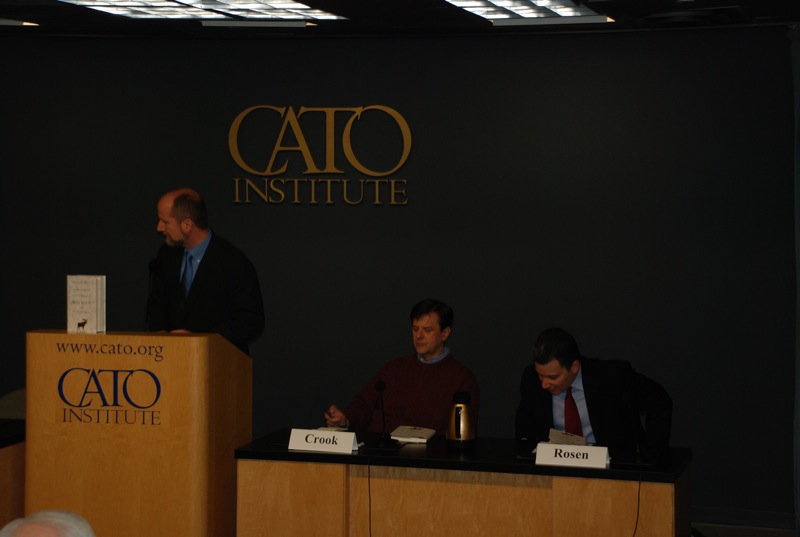I saw a movie a while ago. It was entitled Vice and it was about a man. A man who in the first half of his life was not devoted to studying, much less to work.
Kicked out of the prestigious Yale University, his favourite hobbies were drinking and fistfighting in the bars of rural Wyoming (USA).
One of those people you never thought could become vice president of the United States during the most delicate period of the new century.
This man’s name is Dick Cheney, tied to the Republicans and his sweetheart, who will accompany and support him throughout his rise to power.
He began as the administrative assistant of the Republican Donald Rumsfeld, a controversial figure who needed a faithful and silent subordinate, a task not difficult for Dick Cheney.
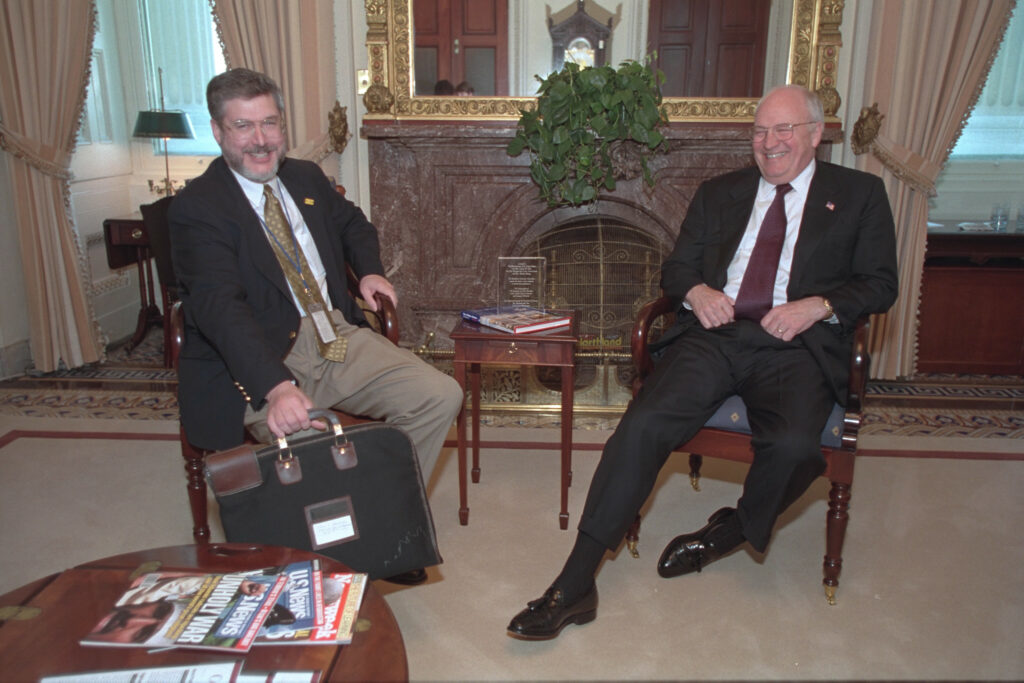
We are still in the old century, in the 1970s to be exact, when the Republican presidency of Nixon was assailed by the Watergate scandal. The party needed new faces that could not be traced back to Nixon’s circle, and thus Cheney’s political career commenced.
Before long, Dick Cheney became Chief of Staff, which means that he was managing the entire staff at the President’s service, and was therefore part of the highest authority of executive power.
But what does “executive power” mean? Cheney hadn’t been good at school, so he had it explained by someone who was more shrewd in this field than he was, someone already inside the palace rooms.
The executive branch is one of three democratic state powers and is responsible for enforcing the laws, but a flea in the ear enriched this definition, showing him how great those in charge of the executive power can become.
This flea was a career-driven young lawyer in the Justice Department who introduced Cheney to the “unitary executive theory.”
Explained in simple words, this theory is an interpretation of Article 2 of the American
Constitution. It asserts that everything the President does is legal, because he’s the President.
As a result, the President can be independent and act without consulting other institutional offices. In this way, the President would have the right to do whatever comes to his mind, like we were not used to in a democracy.
From then on, Cheney began to see politics in a different perspective, especially with other outlooks.
However, the Democrats turned the tables.
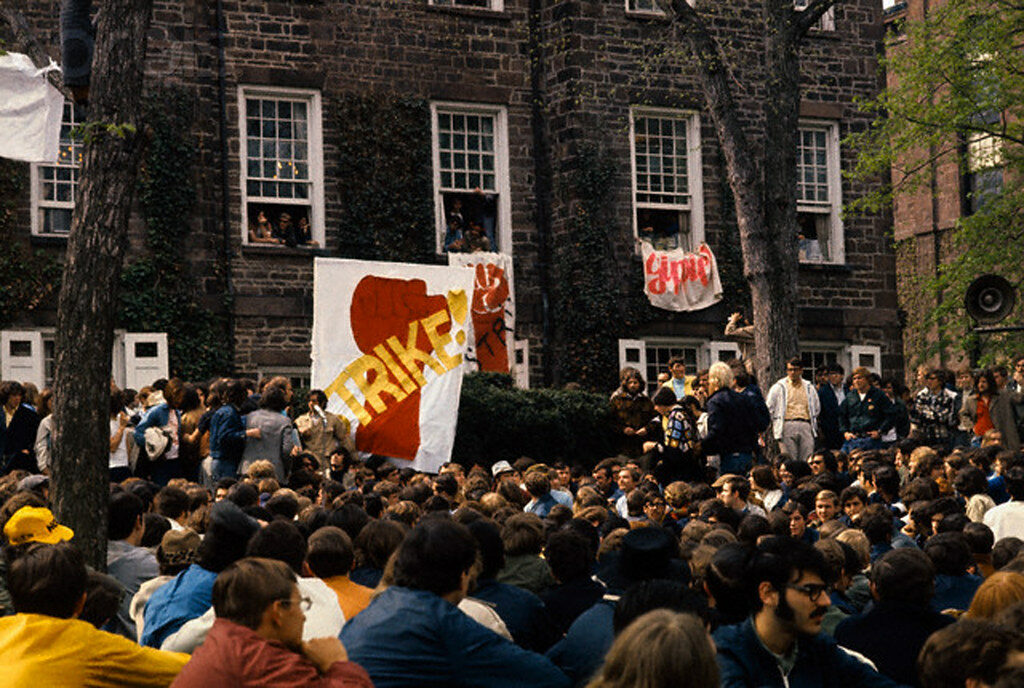
University here, May 4, protesting the Nixon Administration’s Cambodian policy. The
Rutgers demonstration is one of many being staged on university campuses across the nation,
May 4, and the remainder of the week. They’re gathered in front of the Administration
Building. — Image by © Bettmann/CORBIS
These were the years of change, of social revolutions, of civil rights. The environment was seen in a different light and with unprecedented ideas.
People perceived reality differently and were beginning to understand that fossil energy is not the only one available on this planet.
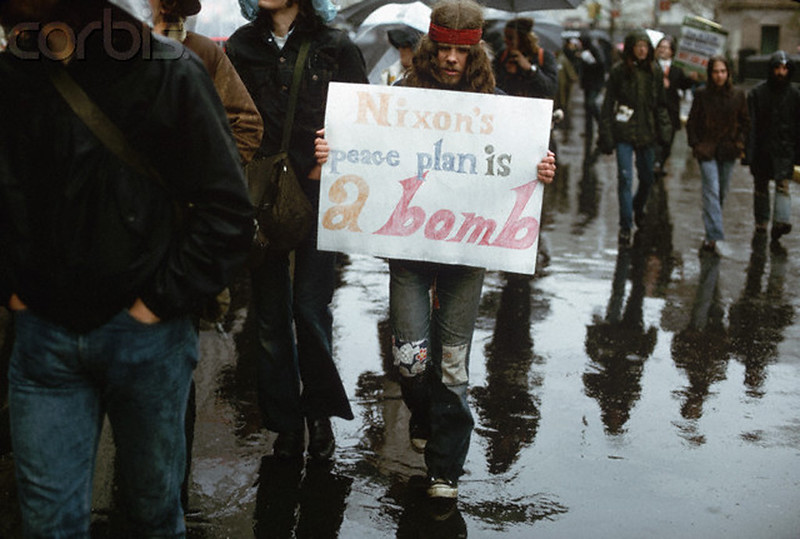
Image by © Owen Franken/CORBIS
But this did not suit everybody.
The Republicans and the corporations had nothing to gain from this breath of fresh air. They actually had more to lose.
However, some wealthy families had the solution: the Koch brothers, for example, who managed Koch Industries, with an annual turnover of around 100 billion dollars thanks to oil refining and more. In their LinkedIn profile they describe themselves as follows:
“Food. Shelter. Clothing. Transport. Koch Industries creates the basic needs of life, innovating ways to make it even better. However, the defence of a free and open society is what truly sets us apart.
Are you interested in the lives of the Kochs? Follow us on Twitter at @LifeAtKoch!”
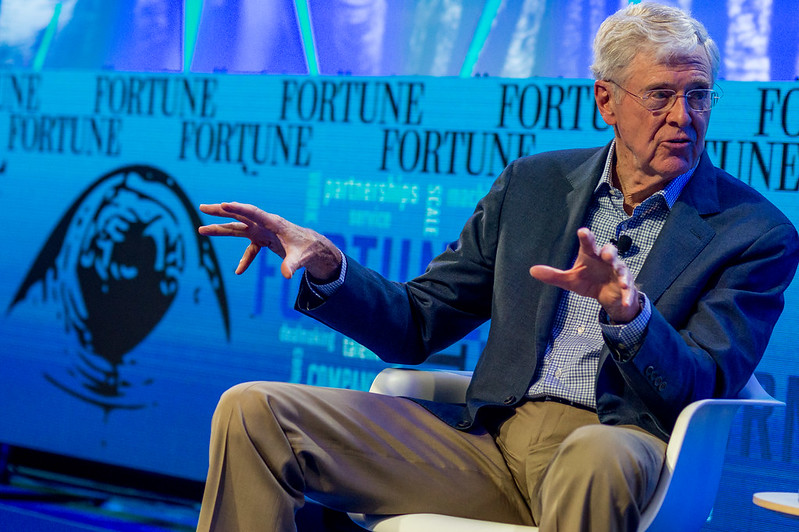
MAKES A LARGE PRIVATE COMPANY TICK? Charles Koch, Chairman and CEO, Koch
Industries Interviewer: Alan Murray, Editor, Fortune PHOTOGRAPH BY KEVIN
MOLONEY/Fortune Brainstorm TECH
Here, families like these began signing fat cheques to fund research and analysis institutes in the fields of sociology, health policy, economic policy, international politics, and constitutional studies.
Under the names Cato Institute, The Heritage Foundation and American Enterprise Institute research and experiments were and are still carried out to “promote to the political leadership and public opinion of a belief about society and politics, whose main values are the free market, the defence of individual freedoms, the limited intervention of the state in economic and social life and effective border protection” and “orienting the choices and political vision of public leadership”. (Source: Treccani)
To sum up, the goal of these research institutes and those who funded them was to push civil society and leadership to see the world with the eyes of the big corporations. When a corporation needed to implement an idea or decision the government would support them, and no one in civil society would feel the need to protest.
These ideas managed to reach the homes of Americans thanks to the Fox News channel.
After the veto on the doctrine of impartiality, also known as the fairness doctrine, they managed to create a channel of information that clearly veered to the conservative right, which provided a platform to all the results that these research institutes had discovered.
In this way the greenhouse effect became “climate change”, the inheritance tax for millionaires “death tax” and began to alter words to give them a more convenient meaning.
Words became a means of imposing one’s will. When television and radio were the only available means of information, it was not difficult to achieve this.
But back to Dick Cheney.
Dick Cheney failed to become President of the United States. He returned to private life and changed his career path. From politics to industry.
By now he had become a CEO of a large oil company, Halliburton.
There will be an opportunity to discuss this later.
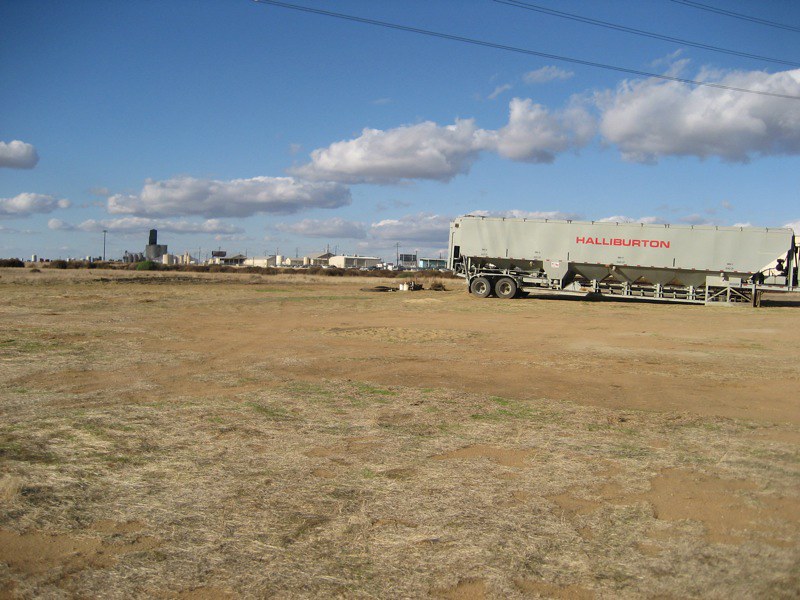
The twists and turns don’t end.
A phone call and a meeting with presidential candidate George W. Bush. He wants Dick to be his vice president. He is not convinced by this proposal, but something tempts him.
Then comes election day.
The results are unclear and it is still unclear whether the presidency should go to the prodigal son George W. Bush or the Democratic challenger and environmentalist Al Gore. The crossroads where the story was perched at that time was divided by a very thin line that the Supreme Court defined, preventing the recount of electoral ballots.
George W. Bush, the son of the Bush lineage, who was a “hothead” in his youth, became the 43rd President of the United States by a margin of 537 votes.
Dick Cheney, the vice president of the first Republican government of the 21st century, but on one condition, i.e. to be able to work like a loose dog. And so it was.
He chose he White House staff himself, leaving out some who were in President Bush’s circle.
He opened his offices in most state bodies, where the Vice President did not normally reside. One in the Chamber, where the budget was defined, two offices in the Senate, one at the Pentagon, and a meeting room at the CIA, when the decision to invade Iraq was taken.
It was time to put the theory of the unitary executive into practice.
With the network he had managed to build over the years it would not be difficult: research institutes found the most suitable way of presenting their intentions to the public, as television broadcast their message to people.
The game was done, so was his empire.
Then came the hour of Cheney’s energy policies. Even then it was easy to break the rules.
Details of meetings with energy (oil and gas) CEOs were never disclosed, but a request based on the Law of Transparency revealed a map of Iraq’s oil fields with all companies interested in buying them if they were available.
Then time stopped.
New York was engulfed by a huge cloud of dust.
Two towers of 110 floors and one of 47, a few metres apart, collapsed to ashes because of two planes.
President Bush was not in the White House so it was the vice president’s job to handle the situation.
Dick Cheney and his circle, including his legal consultant, found themselves in the rooms maneuvering the operations, in a controversial manner, as they had done until now. The
fighter jets did not immediately fly in the air to follow the planes that had been hijacked, and the Pentagon did not respond immediately to alarm reports. It was chaos.
In what was later revealed to be a terrorist attack, 2 977 people died. Office workers, firefighters, moms and dads extinguished themselves like the flames in the skyscrapers that had collapsed, leaving around them and all over the world only dust, anger and so much fear.
The media demanded revenge, so did the people, and soon there was war. The so-called “war on terror” against terrorism and terrorists, which still reaps victims who do not know the reason why they are being killed.
It began with the bombing and occupation of Afghanistan, but the primary goal for Cheney and his associates was another. It was Iraq, part of ancient Mesopotamia, full of artifacts of ancient civilisations now engulfed by war. Rich in that precious material that the earth gives us called oil.
The propaganda machine had to get back on track. News emerged from the CIA that Iraq and its dictator Saddam Hussein possessed weapons of mass destruction. In addition, the media kept repeating that Saddam Hussein was linked to Al-Qaida, the terrorist group that attacked the US on September 11, 2001.
https://www.c-span.org/video/?182360-1/the-connection-al-qaeda-saddam-hussein
These links, just like weapons of mass destruction, have never been found.
But convincing only the Americans was not enough. A vial full of white powder was shown during a speech against Saddam Hussein by US Secretary of State Colin Powell at the United Nations. They were looking for allies in that war and they found them.
First they bombed towns and houses, then they took the reins of the government and disbanded the Iraqi army, leaving thousands of armed and angry soldiers on the streets. To fight terrorism, to bring freedom and democracy to the Iraqi people.
The capital Baghdad was no longer recognisible, the bombs had changed the appearance of ancient cities and had exhausted those who lived there. More than 600 000 Iraqis suffered violent deaths for a cause that cannot be attributed to them.
A total of 4 550 American soldiers were also killed, a number that exceeded the victims of the 9/11 terrorist attack.
Suicide among American soldiers has increased by 31% since 2001.
But there were those who were doing better. After the destruction comes the construction. And those who had destroyed before, now were the builders of new facilities, new schools, roads, hospitals and primary services, such as electricity and water. The new goal of the Bush presidency and the Cheney vice presidency was no longer to destroy but to build.
The Iraq War had turned into a “new emerging market.” At a Sheraton hotel in Virginia, 400 businessmen gathered at a meeting they labelled ReBuilding Iraq, to share the sectors and money that the U.S. government had made available to rebuild the country they had just bombed, occupied and destroyed.
On that occasion, contracts were available for USD 18.6 billion for the next two months.
The people that attended the meeting came from the Iraqi Provisional Authority of the Coalition (CPA, which replaced Saddam Hussein’s Iraqi government), its new programme management office, the Army Corps of Engineers, the US Agency for International Development, multinationals, Bechtel and Halliburton.
Do you remember Halliburton? The oil company that Cheney was CEO of before he became Vice President? It was the first to receive a multibillion-dollar contract to rebuild Iraq without a tender together with its twin company KBR. Now Halliburton’s field of action was no longer just oil, but also the procurement of the armed forces present in Iraq and the reconstruction of a country that existed only on the map.
While the U.S. Department of Defense lost track of 2.3 trillion in a single year. Taxpayers’ money, of course.
While tens of thousands of mercenaries, run by private companies, enjoyed doing target practice with poor people who were in the wrong place at the wrong time.
While torture was considered legitimate, on the basis of the “unitary executive theory”, justified by the state of “war on terror”, secret documents (see also Torture Memos, John Yoo, 2002) suggested to the military in the field the use of unheard-of violence, dogs, the removal of clothes, sexual humiliation, staying hours tied up in stressful positions, all this to prisoners captured without legitimate warrant. Abu Ghraib is a witness.
While the Bush-Cheney White House claimed to have lost 22 million emails due to periods of “blackout.”
While the war on terror and the chaos it created gave rise to new terrorist organizations like ISIS.
As our civilisation died, on the other side of hell you could hear the chalices of wealthy entrepreneurs, such as those of Halliburton who saw their shares rise by 500%, or those of oil companies like Exxon Mobil, which during the war managed to earn ten and a half billion in three months. In three months.
While these characters gnawed greedily and happily whatever was presented to them in their path, those who were born and raised in those streets were left with nothing but death and destruction. And those who lived a little further away from those battered lands would later only know their refugees.
The film ends, the lights are turned on and the cinema closes. I have to go out and it’s already dark, just like the reality that movie showed me.
On the way home I cry. I cry, remembering this video.
Full interview: https://www.youtube.com/watch?v=bSL3JqorkdU
Translated by Adrian Waters
~
Sources
Film Vice – The Man in the Shadows, by Adam McKay, Gary Sanchez Productions, Plan B Entertainment, 2018
http://www.treccani.it/enciclopedia/heritage-foundation_%28Dizionario-di-Economia-e-Finanza%29/
http://www.treccani.it/enciclopedia/cato-institute_%28Dizionario-di-Economia-e-Finanza%29/
https://www.theguardian.com/theguardian/2004/jan/17/weekend7.weekend6
https://www.youtube.com/watch?v=R889eSvuS-w&list=WL&index=143&t=29s
https://www.facebook.com/watch/?v=407908456406804
http://www.infomercatiesteri.it/public/rapporti/r_105_iraq.pdf
https://ricerca.repubblica.it/repubblica/archivio/repubblica/2003/03/11/la-ricostruzione.html
http://www.archiviostampa.it/it/articoli/art.aspx?id=2893
https://www.repubblica.it/online/esteri/iraqdiciotto/powell/powell.html

